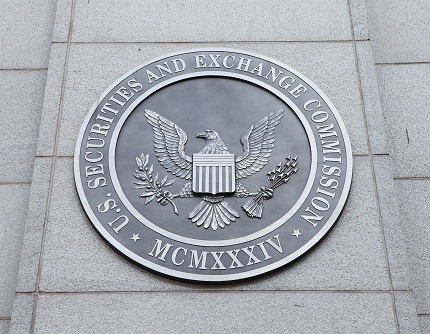 The Securities and Exchange Commission has issued proposed rules that would permit—on a trial basis—public and private companies to offer equity compensation to their gig workers who provide services through the issuer’s technology-based platform.
The Securities and Exchange Commission has issued proposed rules that would permit—on a trial basis—public and private companies to offer equity compensation to their gig workers who provide services through the issuer’s technology-based platform.
The SEC approved release of the proposed rules on Nov. 24 on a party-line vote. They stipulate that an issuer could use the Rule 701 exemption to offer and sell its securities on a compensatory basis to platform workers. The equity compensation would be subject to percentage limits of no more than 15% of annual compensation during a 12-month period and dollar limits of no more than $75,000 received from the issuer during a 36-month period. The temporary program would be in effect for five years. Other conditions would apply as well.
The SEC explains in its announcement that issuers operating internet-based marketplace platforms may have the same compensatory and incentive motivation to offer equity compensation to individuals participating in their platform-based businesses as they do to their employees, but they currently are unable to provide that equity compensation under Rule 701 or on Form S-8.
In a companion release, the Commission also proposes additional amendments to Rule 701 and Form S-8 to modernize the framework for compensatory securities offerings to allow employees and other workers to receive equity compensation from their company while maintaining investor protections.
“Work relationships have evolved along with technology and workers who participate in the gig economy have become increasingly important to the continued growth of the broader U.S. economy,” SEC Chairman Jay Clayton said in a statement. “Today’s proposed amendments seek to modernize our requirements for including company securities in worker-company compensation arrangements so that workers have the opportunity to share in the growth of the business.”
Among other things, the proposed amendments would permit an Exchange Act reporting company to make registered securities offerings to its platform workers using Form S-8. The same conditions proposed for Rule 701 issuances would apply to issuances to platform workers on Form S-8, except for a proposed transferability restriction.
The proposed amendments would not permit the issuance of securities for platform worker activities relating to the sale or transfer of permanent ownership of discrete, tangible goods. The SEC notes that—depending on the results of the initial expanded use of Rule 701 and Form S-8, if adopted—it could consider expanding eligibility to other activities, such as selling goods or other non-service providing activities in the future.
Additionally, to help in the evaluation of the proposed expanded scope of Rule 701 and Form S-8, the proposed amendments would require an issuer that sells securities to platform workers to furnish certain information to the Commission at six-month intervals.
Mixed Reviews
The Commissioners offered somewhat mixed reviews of the amendments. Republican Commissioners Hester Peirce and Elad Roisman offered their support. “Taking a cue from the flexibility that the gig economy provides to its platform workers, the proposal demonstrates the Commission’s willingness to open the door to opportunities for gig workers to participate in the growth of the companies that sign their checks,” they stated.
By contrast, Democratic Commissioners Allison Herren Lee and Caroline Crenshaw noted that they support the proposed package of technical updates to Rule 701 and Form S-8, but oppose singling out a specific sector for the pilot program.
“Today the Commission singles out one narrowly-defined subset of companies who depend on these workers—companies that provide services through internet platforms—and proposes to create a new exemption from traditional registration requirements just for them,” Lee and Crenshaw state. “The proposed exemption would expressly permit these internet platform companies, and only these internet platform companies, to pay a portion of compensation to alternative workers with equity in the company rather than cash.”
In noting that contingent workers make up as much as 40% of the workforce, Lee and Crenshaw explain that the proposal does not reconcile the discrepancy between the broader data set analyzed and the more narrow subset of workers identified for the new treatment, except to assert broadly there has been an increase in the use of technology-based platforms in the last few years, even though various types of alternative workers have been a feature of the economy for a long time.
“Unfortunately, we cannot support this proposal because there is no sound policy justification for singling out a subtype of alternative workers for this exemption—those who provide services through internet- or technology-based platforms,” Lee and Crenshaw state.
The Commission first floated the idea to modernize the exemption under Rule 701 and to update Form S-8 in a July 2018 Concept Release on Compensatory Security Offerings and Sales. The SEC had requested comments on how to address the evolution that has taken place in the types of issuer compensatory offerings and the composition of the workforce, including in the gig economy.
The proposal will have a 60-day public comment period following its publication in the Federal Register. It’s worth noting that the proposal comes following Chairman Jay Clayton’s announcement that he will be leaving the Commission at the end of the year. As such, the public comment period won’t end until after he has departed, and an incoming Democratic commissioner could help table the proposal altogether or further revise it.

